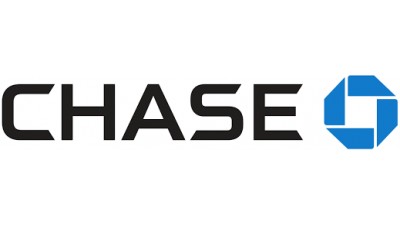In A Turbulent Year, Lenders Step Up To Find Creative Ways To Keep Deals Flowing

The coronavirus pandemic wreaked havoc on the commercial real estate world, pausing projects, shuttering deals and leaving businesses across the commercial real estate industry and beyond to worry whether they would be able to make payments on their loans.
But in the midst of the crisis, the financial world has gotten creative. Dedicated and quick-thinking lenders that stood by their borrowers have helped businesses not only survive the current crisis, but, in some cases, even grow.
“We’ve been providing our eligible clients with relief whenever we can,” said Greg Werly, executive director of commercial term lending at Chase. “We know clients were feeling pressure on the top and bottom lines, and we looked for ways to help lower financing costs and focus on serving their tenants.”
JPMorgan Chase has spent the last year finding proactive ways to get deals done in the new normal — creating new finance programs, finding ways to re-leverage existing assets and lowering finance costs to help its clients achieve their goals despite the current challenges.
The firm created a “peace of mind” refinance program that allowed clients to refinance their current loans and take advantage of the lower rates that came as a result of the pandemic. This way, they could keep up with their current loan payments, and possibly even move forward with new projects.
Toward the end of last year, Werly and his team closed a major deal that helped a client grow his portfolio, despite innumerable challenges posed by the pandemic and the economic downturn that followed.
The client was looking to acquire 12 apartment buildings in Montgomery County, a market in which it was already deeply invested. The client planned to refinance a portion of its portfolio to facilitate the equity contribution for the acquisition of the 12 buildings. Typically the client would have faced prepayment fees, but since the client already had a number of loans with the firm, JPMorgan Chase was willing to be flexible on the prepayments to keep up momentum. The client was able to then re-leverage his current portfolio, without prepayment concerns, and acquire the 12 buildings.
“Everyone was eager to get this closed by the end of the year,” said Nicholas Bralove, vice president of commercial term lending at Chase. “We were able to issue a commitment letter within 40 days for a total of 28 apartment buildings, a remarkably fast timeline considering the uncertainty we were facing last fall.”
Bralove added that the client was committed to keeping the current tenants of these properties in place. This was a relief to the county, which recommended the client enter into a rental agreement to keep the apartments affordable. Bralove agreed this was the best strategy for all stakeholders involved. He and his team were able to help close things out by lowering the financing costs as a result of this agreement.
In the end, the client had his apartment buildings and the county knew the apartment rents would stay in a range that was consistent for the needs of the residents in order to keep their homes.
“This deal highlights a lot of what we do best,” Bralove said. “We were able to be flexible with the deal as it evolved, and with the current loans we held, we were able to move quickly and make the deal happen in a way that met our client’s goals and the municipality's as well.”
Bralove said that one of the reasons this deal could happen so quickly was that before the pandemic, JPMorgan Chase invested in a digital origination process that allows the firm to execute complex portfolio deals in less than two months.
Looking ahead, Werly said that his team is hoping to build on the factors that have already made them successful in the greater D.C. area — industry-leading transparency, certainty, speed and cost structure. The company plans to continue its focus on helping its clients who want to provide high-quality housing at an attainable price.
“Many of these clients don’t qualify for a subsidy because they don’t have a land use covenant,” Werly said. “These buildings aren’t getting any younger, and they require more and more below-the-line reinvestment.”
Werly said his colleagues in Community Development Banking have done a great job financing the construction of new affordable units, and he wants to find other ways to encourage the preservation of existing affordable buildings.
The firm recently announced a $30B business commitment over the next five years to provide economic opportunity to Black and Latinx communities. This commitment, which includes loans, equity and direct funding, will help to promote, preserve and expand affordable housing and homeownership.
Werly said that the lender has also been investing in Treasury solutions, which help smaller owner-operators manage all aspects of their properties — from tenant communications to receivables and payables. The goal is to help these clients grow their business while lowering their management costs, facilitating greater reinvestment in the local real estate market.
“Greater Washington D.C. is a growth market for us,” Werly said. “We want to do our part to boost the regional economy, support local communities and help this area we live and work in continue to thrive.”
Visit jpmorgan.com/cb-disclaimer for disclosures and disclaimers related to this content.
This article was produced in collaboration between JPMorgan Chase and Studio B. Bisnow news staff was not involved in the production of this content.
Studio B is Bisnow’s in-house content and design studio. To learn more about how Studio B can help your team, reach out to studio@bisnow.com.

